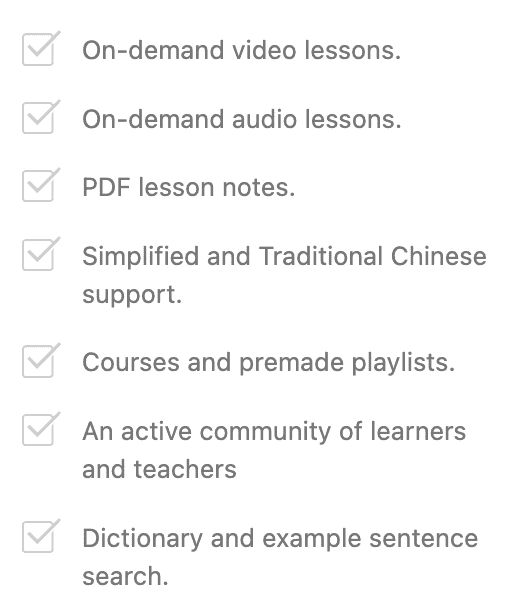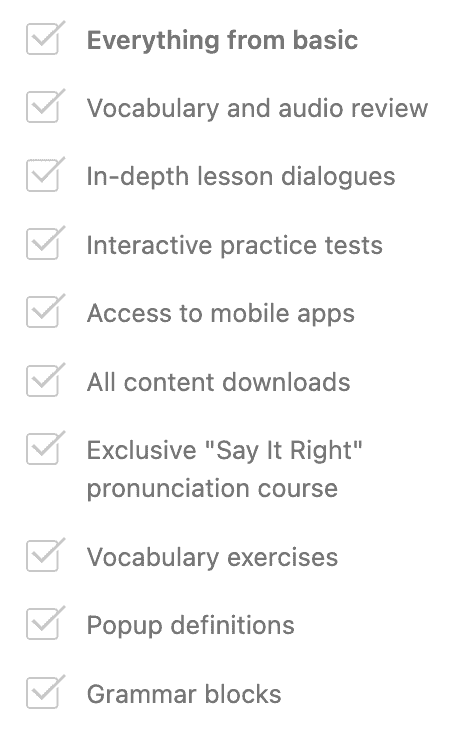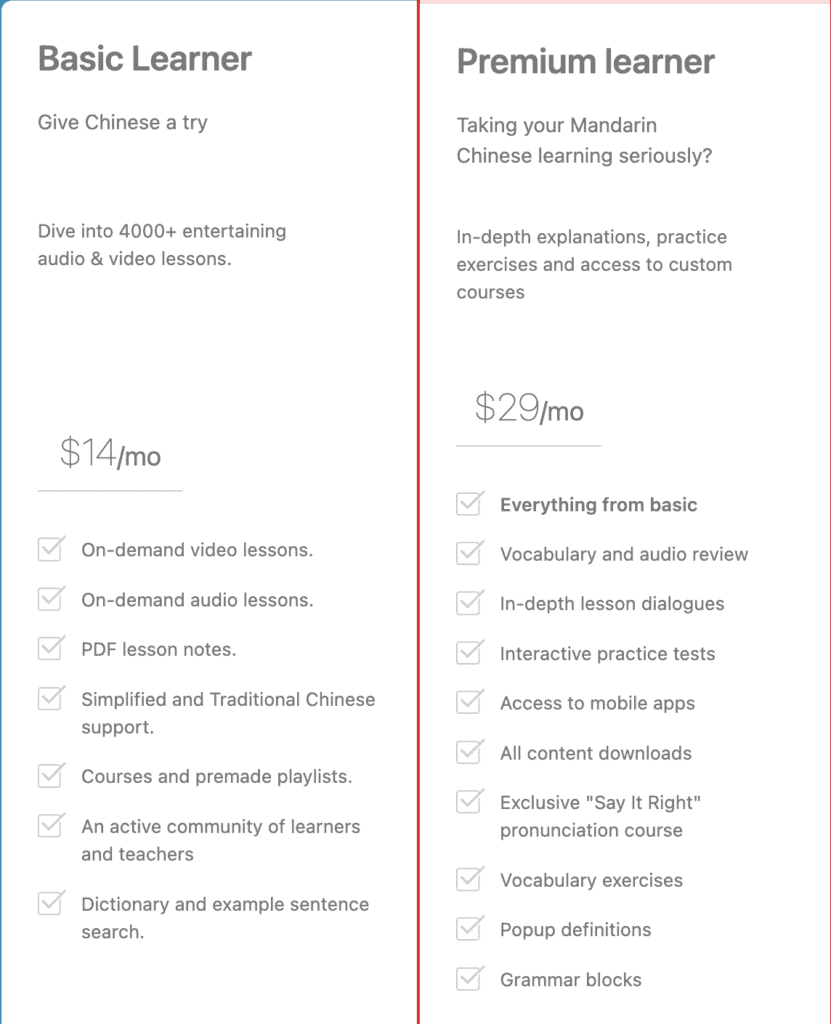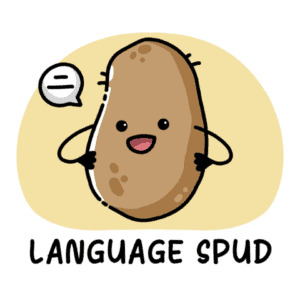
The internet is awash with Mandarin learning audio content and a lot of that content is completely free.
However, not all of the bajillion hours of audio content found online is particularly interesting.
Or level appropriate.
Or transcribed.
During my own Mandarin learning journey, I have sampled hundreds of apps, YouTube channels, online courses, and study techniques to specifically improve my Mandarin listening skills.
So, when I say Chinesepod is one of the best Mandarin learning resources for improving your listening skills, you should know I’m not talking complete nonsense.
And no, I’m not even an affiliate.
Why is Listening in Mandarin so Hard?
There are a few theories as to why learners of Mandarin find listening such a difficult skill to refine.
The difficult aspects of Mandarin Chinese highlighted below tend to resonate more with native speakers of English or other European languages.
- Mandarin Chinese is a monosyllabic language – In Mandarin, many words consist of one sound. That sound can mean many different things depending on tone, character, or context.
- Tones – tones differentiate the many similar, monosyllabic sounds in Mandarin Chinese as you’ll see below. This is something many learners find difficult. I know I did. “How can ‘ma’ mean so many different things!? In English, ‘horse’ means ‘horse’ and nothing else!”
妈 – mother – mā
妈 – horse – mǎ
骂 – to scold – mà
麻 – generic name for hemp, flax etc. – má
吗 – question particle – ma - Accents – Accents are a challenge for learners of any language, but accents pose more of a challenge for those learning a monosyllabic language. Changes in the sounds of a monosyllabic language make things objectively more difficult to understand, and the only way to overcome this difficulty is through sheer volume of exposure to different accents and listening practice in general.
Having said all this, and despite the difficulties associated with learning Mandarin, it’s not as difficult as it’s made out to be.
Chinesepod certainly makes things easier.
What Is Chinesepod?
Chinesepod is a Mandarin Chinese learning podcast service.
It offers short, 10-20 minute podcasts that feature a conversation in Mandarin Chinese, which is then broken down and explained (mostly in English, but this depends on your level) by two Mandarin Chinese speakers.
Unless you’re listening to one of the advanced podcasts, one of the commentators on the podcast will be a foreigner. Although this foreigner will be able to speak Chinese, he or she will play the role of a clueless newbie, asking all of the questions a beginner might usually ask.
This results in an elenctic method conversation where the foreigner asks loads of questions about the grammar, tones, vocabulary, and context, whilst the Chinese host provides the answers.
Chinesepod offers a whole range of other functions which will be discussed later, but the detailed podcasts are the main draw.
Why Chinesepod?
Chinesepod offers interesting content for Mandarin learners at every level
Seriously – even for newbies.
And when I say ‘interesting content’, I don’t mean Chinesepod has podcasts on ‘hOw To Say HeLlO iN 12 dIfFerReNt WaYs!’
Chinesepod has content covering incredibly varied topics such as TV adverts, film reviews, pancakes, WeChat, etc. The list is endless… Well, not endless, but the newbie lesson database is 35 pages long.
If you don’t believe me, check out the database of lessons here.
Chinesepod really helps you understand the content
Say you’re reading a textbook or listening to some audio with a transcript in front of you.
You listen, you read, you learn the characters and words, but you have no idea what’s being said. You put the text in Google Translate and the translation makes no sense at all.
The breakdown of the dialogue in Chinesepod lessons takes care of this surprisingly common (and stressful) problem.
Chinesepod caters very well to the intermediate learner
Many intermediate learners of Mandarin Chinese share the same complaint.
‘There’s loads of learning stuff for newbies and advanced learners, but what about us who have reached the intermediate plateau?”
Every intermediate learner ever
Chinesepod intermediate and upper intermediate podcasts are excellent sources of comprehensible input for the intermediate learner.
Chinesepod isn’t just listening content
Seriously, there are so many helpful add-ons and functions in Chinesepod which turbo-charge your listening practice.
These aspects of Chinesepod will be discussed later in the features section.
Seriously Though, Why Chinesepod?
One of the most common ways to practice your Mandarin listening skills as a newbie is to purchase a textbook with accompanying audio. I’ve learned with different textbooks and they can be a very effective learning tool.
However, at some point, studying this way might become incredibly boring.
Chinesepod offers thousands of podcasts on its database covering a range of useful, real-life topics that solve problems you actually have when living or visiting China.
Here’s an elementary lesson on how to make apologies:
Here’s an intermediate lesson about a girl who’s got the hots for her fitness instructor:
And here’s an advanced lesson about craft beer:
Chinesepod Features: Basic Subscription
- Over 3000 audio and video lessons to choose from. A new one is added pretty much every day, but not necessarily at the level you’re learning from. Basically, you can expect one new lesson a week at your level, but there are still hundreds of lessons to get through before you’re waiting for new content. Be aware that some older lessons from Chinesepod don’t have a video version.
- Graded system. It goes from newbie to advanced. Newbie lessons feature a short dialogue repeated a few times and picked apart by the speakers in English. When you get to upper-intermediate/advanced classes, most of the podcasts are conducted in Mandarin.
- Topics. There is a massive range of topics that are useful and much more likely to match with your specific interests. I bet your textbook doesn’t teach you how to ask out your personal trainer…
- PDF lesson notes. These are really useful as you can read the dialog and key vocabulary from each podcast.

Chinesepod Features: Premium
As well as having access to all of the features from the Basic Package, the Premium Package offers quite a few extra bells and whistles.
- Downloadable content. This is the real winner for me and why I pay for the premium subscription. Having all transcripts, videos, podcasts, and dialogues in separate files on my phone makes everything so much easier.
- Further exercises and flashcard system. There are further materials and quizzes to solidify learning for each podcast.
- Lesson dialogue and audio review MP3. This is really helpful for those that simply want to review the dialogue from a particular lesson, but not the explanation and dialogue breakdown.
- Custom vocabulary lists. These lists are helpful if you want to study the vocabulary from lessons as a stand-alone endeavour. For example, you can import vocab lists into whatever flashcard app you have, and you can also link your Chinesepod account to your Skritter account (if you have one) so you can practice writing the characters as well.
- The Chinesepod app. The app isn’t great, but it’s available for iOS and Android. You can still only download the podcasts from Chinesepod via the website.

What I Like About Chinesepod
- Interesting Topics. If you really want to learn language, you have to be interested in both the language itself and the topic at hand. There are so many boring resources out there for learning Mandarin Chinese which cover the same topics over and over: asking for directions, ordering food, etc. The Chinesepod database of podcasts covers so many different topics that are useful and fun.
- Accessible. Download what you need and listen/watch anywhere. I can learn with Chinesepod on the metro or in a taxi, during my workout, or in the office. Almost every other mode of learning requires me to spend some time alone in a quiet, secluded area.
- Chinesepod gives context. If I’m struggling to understand the audio from a textbook, I have to open the book, look at the dialogue, translate it, and then even then there are times I still don’t get it. With Chinesepod podcasts, they supply the context there and then during the dialogue breakdown.
- PDF and HTML transcription. The transcripts include Chinese characters, pinyin, and an English translation. The HTML transcription is important because you can directly copy-paste the sentences to wherever you want. I like to save copies of the dialogues in text files in the Pleco app.
Chinesepod Downsides
Although Chinesepod is one of the better paid Mandarin learning resources on the market, there are a few things I take issue with.
- Too much English in lower levels. Most of the dialogue breakdown for beginner level seems to consist of vocabulary explanations. This is definitely helpful, but I have a dictionary for discovering the meaning of characters and new words, and using a dictionary is much cheaper than a subscription to Chinesepod.
- Downloads only available to premium users – Previously it was possible to download podcasts as a basic user, but not any more. Almost $30 a month to be able to download audio files and videos for offline use is pretty expensive.
- Gap in difficulty between intermediate and upper-intermediate. To be fair, it would be very difficult to please everyone when it comes to how much English is used in each level. However, be warned that although plenty of English is still used in the intermediate podcasts, there is virtually no English used in the upper-intermediate podcasts.
- The app is only available on Premium. Given the times we’re living in, I don’t think an app should be a premium product. On top of this, the app really is quite bad. This doesn’t make much of a different to the user experience of Chinesepod because it’s easy to get everything you need from the web version.
Chinesepod Pricing
Chinesepod offers two different subscription levels. There are ways to save money on these subscriptions which I will share below.

Money-Saving Tips
- Quarterly and annual subscriptions are much cheaper than a monthly subscription, as you can see from the table below.
| Chinesepod Subscriptions | Monthly | Quarterly | Yearly |
| Basic Package | $14 | $39 $3 Saving | $124 $44 Saving |
| Premium Package | $29 | $79 $8 Saving | $249 $99 Saving |
- Intermittent subscriptions. You can subscribe to Chinesepod for a month, during which time you can download as many interesting lessons as you want. Then, you can unsubscribe. If you want more lessons later, consider subscribing for another month. This way you’re paying for their services but cutting the costs of a long term subscription.
- Sign up for a free trial. Chinesepod’s free trial is especially generous, with one hundred free lessons for you to choose from before you decide to make a longer-term purchase.
- Check out the Chinesepod YouTube channel. Chinesepod has a lot of free content on their YouTube channel. Although you won’t find transcripts here, with some effort you can transcribe these videos yourself.
Summary
Chinesepod is probably my favourite active listening tool.
Once you hit an upper intermediate or advanced level, you can really branch out with listening materials, but I still use Chinesepod on a daily basis.
I must reiterate that Chinesepod should not be your only source of Mandarin study.
I’m an upper-intermediate learner and as well as Chinesepod, I use the flashcard service Hackchinese, lots of music on Spotify and QQ Music, and a ton of bad TV shows and movies which I’ve written about here and here.
If you want to sign-up for Chinesepod, make sure you take advantage of their generous free trial first. I’d recommend you to use any free trial of a product before you part with your hard-earned cash.
Further Reading
- 100+ MANDARIN LEARNING RESOURCES: THE FASTEST WAY TO FLUENCY
- THE ULTIMATE GUIDE TO LEARNING CHINESE IN CHINA
- THE 20 BEST MANDARIN STUDY RESOURCES FOR BEGINNERS
- 10 REASONS WHY YOU SHOULD LEARN MANDARIN CHINESE
- IS IT EASY TO LEARN MANDARIN CHINESE?
- THE 21 BEST APPS TO LEARN CHINESE
- STUDYING MANDARIN AT A UNIVERSITY IN CHINA: WHAT YOU NEED TO KNOW
